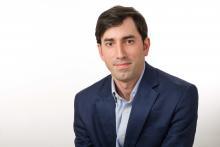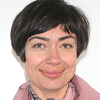A new Russia roadmap - The near impossible battle to topple Putin
To the casual observer, the past three years in Russia have been particularly mystifying — bold protest marches, campaigns calling the Duma majority “crooks and thieves,” the imprisonment of some, but not all, leading dissidents, and gulag time for the outrageous Pussy Riot girls. Russia’s own Islamic jihadists even threatened to blow up Sochi during the Winter Olympics.
But President Vladimir Putin carries on, outwardly unperturbed.
Now, along comes the book we need, a kind of roadmap of what has been going on inside Russia while we were confused. Kicking the Kremlin: Russia’s New Dissidents and the Battle to Topple Putin reveals the strengths and the weaknesses of the current Kremlin team and explains, in conclusion, why Putin cannot be toppled. Yet.
Author Marc Bennetts, a British freelance reporter with 15 years experience covering Russia, brings to this story a readable journalistic flair and a sense of close contact with Russians that one does not get from reading the Washington Post or the New York Times. Bennetts is married to a Russian girl and is at ease with the language.
In his meticulously footnoted account, Bennetts reminds us that Kremlin cynicism was noticed by the rising Russian middle class around 2011 as obscure protesters’ anti-corruption message caught on. Lawyer Andrei Navalny’s catchphrase “crooks and thieves” to describe the pro-Putin United Russia party popped out almost by accident in a radio interview in the spring of 2011. “This is the party of crooks and thieves. It is the duty of every patriot — and yes, I am a patriot — to do all they can to destroy this party,” he said.
Navalny had struck a chord. Part of the slogan’s appeal was its underlying brazen humor. “Crooks” in Russian is zhuliki, which can mean petty thieves or con men. This was a “gloriously defiant and truthful” slogan that insulted and demythologized the leaders, Bennetts writes. “Suddenly, Putin and United Russia didn’t look so powerful or frightening, after all.”
Marches through Moscow, some authorized, some not, turned out hundreds of thousands of disaffected Russians at first. Organizers made full use of modern communications — Facebook, Twitter and email — to spread the word and attract followers.
Even the Pussy Riot girls had an impact, albeit only in the West. But that suited their aims. The girls wanted to “draw attention in the West to what’s going on in Putin’s Russia and they have succeeded,” the husband of one of the girls told Bennetts.
As Bennetts tells the story, a brutal crackdown on the dissidents came next, in 2012 and 2013, effectively snuffing out major protests, at least for the present. “No one in our country wants chaos,” Putin said in a television statement, with a nod to the Ukraine which was already restless. Yet this suppression was more a sign of Putin’s vulnerability than his strongarm successes. Bennetts calls it “a tacit admission that he felt threatened — however briefly — by the unprecedented protests…”
The beleaguered Navalny, who studied at Yale University and is now free on probation, remained outspoken during the Winter Olympics. But he despairs of rallying the torpid Russian populace to help him clean up fraud and corruption in high places. In one speech he expressed his frustration: “What’s happening in our country is like some old, feeble woman being mugged by a gang of evil teenagers as she walks down the road. But instead of helping her out, everyone just watches. Or Tweets about it.”
A thread running through Bennetts’ story is the recurring theme of intrusion by foreign devils, a Russian fear dating back to Genghis Khan, Napoleon, and Hitler. Navalny himself has been branded by Putinists as a foreign agent. As one prominent Russian told Bennetts: “American taxpayers spent money on his training at Yale (where he was a World Fellow in 2010) which prepares leaders of the so-called Third World. We all understand what kind of leaders they prepare there. They rate this type very highly and recommend that the State Department use him in the interests of the United States.”
The rising political tensions of 2011 prompted Putin to outdo himself in exploiting national xenophobia. In nationally televised comments, he said he believed then-Secretary of State Hillary Clinton had “given a signal” to opposition leaders, “and with the support of the U.S. State Department, they began active work”.
Duma lawmaker Yevgeni Fyodorov told Bennetts in an interview he believed that there are “agents of U.S. influence within the government.” Just as worrisome to him was the fact that there are NATO troops in what he still regards as “the Soviet republics of Estonia, Latvia and Lithuania.” Bennetts was stunned. “We had been talking for less than half an hour but my brain had already started to go numb,” he recalls.
“Fyodorov is the logical result,” Bennetts writes, “of the Kremlin-backed xenophobia poisoning Russian politics.” Bennetts left the interview having seen “the fanaticism and warped suspicions that led the Soviet Union to murder millions of its own citizens.”
In one of Putin’s “Conversations with the Nation,” he issued a disguised threat. Speaking of “people who possess Russian passports and act in the interests of foreign governments,” he said, it was “useless or impossible” to have a dialogue with them. “I’ll tell you what there is to say: ‘Come to me Bandar-logs.’” To most educated Russians, big fans of Rudyard Kipling, the allusion was unmistakable. Kipling’s python Kaa, from the Mowgli stories, swallowed Bandar-log monkeys whole. “I’ve always liked Kipling,“ Putin said, grinning.
To all evidence, the old external-enemy tactic was working. An opinion poll in 2012 suggested that around two-thirds of Russians believed the West could be behind the wave protests.
Bennetts’ recounting of the cynical trading of places at the top between Putin and his prime minister, Dmitri Medvedev, clarifies how the switch was concocted and sold to the electorate. Following Putin’s two terms as president from 2000 to 2008, he “seemed to have Russia locked down,” Bennetts writes. “But he was about to be faced with a dilemma, the solution to which would both define his long rule and sow the seeds for increasing dissent.” Putin had to decide whether to stay or go. In the end, he decided to do both, ensuring that an entire generation of Russians will have known no leadership other than Putin’s.
Medvedev and Putin had worked together in the municipal government of St. Petersburg in the 1990s, Medvedev as a part-time associate. Bennetts quotes visitors to Putin’s offices at the time as noticing Medvedev sitting “at a tiny desk in the lobby, frequently mistaken as Putin’s secretary.” Later when their Kremlin power-sharing arrangement was put into practice, images of the two friends were everywhere — “the stern but wise Putin and the jovial, almost childlike Medvedev.” In 2011, the presidential term was extended from four years to six. Thus Putin has every expectation of remaining in power until the next presidential elections in 2018.
And yet the protests of 2011-2012 faltered and Putin saw an opportunity to go after his enemies. The harmless Pussy Riot girls were thrown in jail, Navalny tried, convicted, and now faces a possible ten years in a labor camp and NGOs were under pressure as suspected foreign agents.
Bennetts writes that Putin’s message of stability has prevailed for so long because so many Russians have first-hand experience with the dangers of rapid political or social change. “Ordinary people may be angry about corruption but they are unprepared for the massive sacrifices that overthrowing Putin would entail.”
The next four years may be a time of toil and trouble for Putin. Already polls show that three-quarters of the Russian electorate do not want him to try for a fourth term of office. And Kremlin-controlled television is becoming a figure of fun. In 2009, some 79 percent of viewers believed what they saw and heard there. Last year that figure had plunged to just over half the population..
Bennetts quotes a pensioner in Kirov as telling him she believed that Putin’s aim was only “to do all he can to make us strong.” She knew this to be true because she had heard it on state-controlled TV. Then she added: “Of course if the TV is lying, then so am I.” Bennetts said she then laughed nervously, the notion apparently having occurred to her for the first time
First posted on The American Spectator. Posted here with their and the author’s kind permission. For The American Spectator, please click here.
This article is brought to you by the author who owns the copyright to the text.
Should you want to support the author’s creative work you can use the PayPal “Donate” button below.
Your donation is a transaction between you and the author. The proceeds go directly to the author’s PayPal account in full less PayPal’s commission.
Facts & Arts neither receives information about you, nor of your donation, nor does Facts & Arts receive a commission.
Facts & Arts does not pay the author, nor takes paid by the author, for the posting of the author's material on Facts & Arts. Facts & Arts finances its operations by selling advertising space.


















